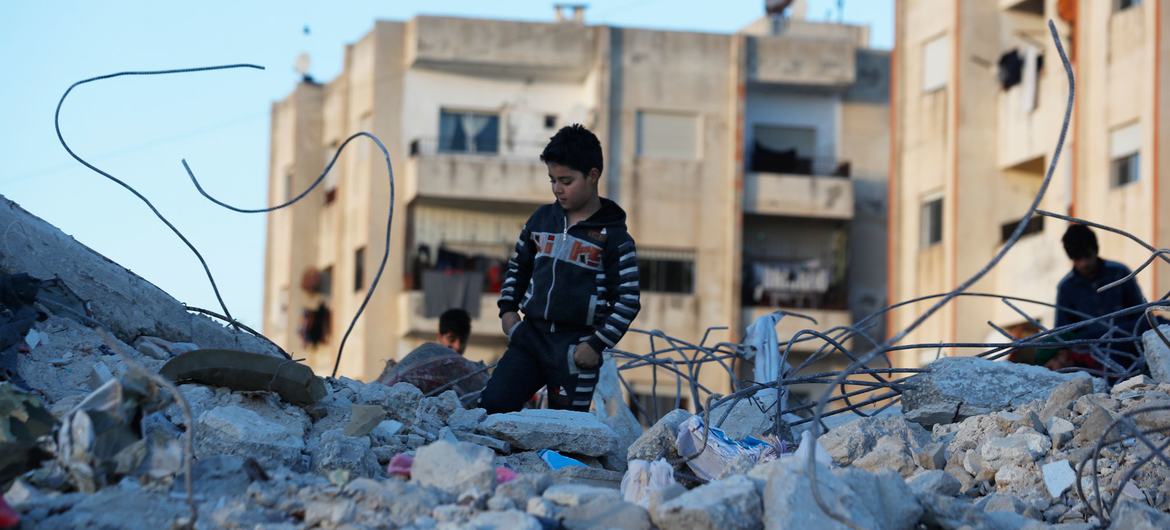UNICEF: Millions of children still facing dire conditions 100 days after Türkiye-Syria quakes

Millions of children in Türkiye and Syria are still enduring dire conditions, 100 days after devastating earthquakes struck both countries, according to a report by the UN Children's Fund (UNICEF). The earthquakes, which occurred on February 6, have left 2.5 million children in Türkiye and 3.7 million in Syria in need of ongoing humanitarian assistance. UNICEF has called for increased support for the affected families.
The earthquakes and subsequent aftershocks have pushed families to the brink, resulting in children being left homeless and without access to essential services such as water, education, and medical care. UNICEF Executive Director Catherine Russell, who visited both countries shortly after the earthquakes, stated that children have experienced unimaginable loss and grief. Many families in the affected areas were already struggling even before the earthquakes, with a significant proportion living below the poverty line.
The earthquakes have exposed vulnerable children in the hard-hit regions to various threats, including violence, forced marriage, forced labor, and a disruption in education. UNICEF warned that the progress made in reducing these risks in Türkiye could be reversed by the impact of the earthquakes. In Syria, where children have been facing the consequences of a 12-year-long war, the earthquakes have further exacerbated the situation, damaging infrastructure and public services.
The damage to water and sewage infrastructure in Syria has increased the risk of waterborne diseases for 6.5 million people, including 51,000 children under the age of five who are likely to suffer from acute malnutrition. Additionally, nearly two million children have had their education disrupted, with many schools being used as shelters.
UNICEF emphasized the urgent need for continued support to families and called on the international community to prioritize a child-focused early recovery and the rebuilding of infrastructure. Key areas requiring investment include financial assistance for families, access to quality education, and psychosocial support. Furthermore, funding is needed for health, nutrition, and water, sanitation, and hygiene programs to reduce the risks of disease outbreaks.
To address the critical situation, UNICEF has appealed for $172.7 million to meet the life-saving needs of nearly three million earthquake-affected children in Syria. However, only $78.1 million has been received so far, with nutrition, health, and education remaining significantly underfunded. In Türkiye, UNICEF still requires more than $85 million out of a $196 million appeal to provide essential services to children.

